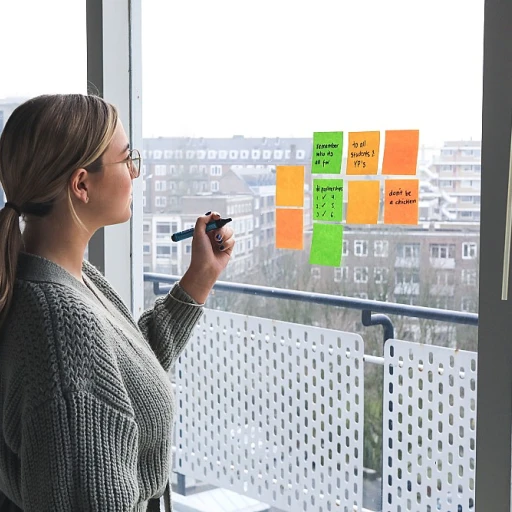
Understanding the Indian Business Environment
Acclimating to a Unique Business Landscape
Understanding the Indian business environment is pivotal for optimizing project timelines. India embodies a distinctive fusion of traditional practices and modern methodologies, impacting how projects are managed. This complex landscape necessitates a sound grasp of various cultural nuances, government regulations, and industry-specific norms that influence project timelines. Cultural dynamics often intersect with business operations in India, where decision-making processes can vary significantly from global counterparts. The prevalent hierarchy in organizations can impact the pace of project-related decisions, thus affecting the project duration. Given these complexities, project managers must refine their time management approaches, considering local business etiquettes and practices. Moreover, the economic landscape, with its vast market potential, presents opportunities and challenges in managing project costs, resources, and risks. Constant fluctuations in resource availability and costs can necessitate adaptive risk management strategies, as well as proactive project crashing or fast tracking of activities to meet critical deadlines. The integration of advanced management tools into project workflows can also rectify scheduling issues, thereby reducing project duration and ensuring cost efficiency. Adapting to robust management practices, such as critical path method (CPM) analysis, aids in identifying the most crucial tasks! Reducing project delays becomes feasible by prioritizing activities that directly impact the project’s timeline. Furthermore, leveraging workflow efficiency tools tailored specifically for Indian companies can streamline critical processes. For more insights on optimizing efficiency in this unique business context, consider exploring the benefits of BPMS tracking to drive enhanced project outcomes.Identifying Common Project Delays
Common Causes of Project Delays
In Indian companies, project delays often stem from a combination of factors that disrupt the orderly progression of tasks and extend project duration. One of the most significant causes is inefficient project scheduling. An overly ambitious project plan can lead to the underestimation of time, resources, and costs required to complete critical project activities. Several elements frequently contribute to this inefficiency:- Scope Creep: When project requirements continuously change or expand beyond the original plan, it creates a moving target for the project team. Effective scope management is essential to curb this issue.
- Resource Allocation: Ensuring adequate resources, both human and material, remains a perennial challenge. Misallocation or insufficient resources can severely impact project timelines.
- Time Management Issues: Poor time management often results in delays. Project managers need to implement effective strategies in time allocation to different tasks within the project.
- Lack of Risk Management: Projects in India are not immune to unforeseen risks. Without a proactive approach to identify and mitigate risks, projects are more vulnerable to delays.
Leveraging Technology for Efficiency
Leveraging Innovative Tools for Streamlined Processes
In today's fast-paced business climate, the ability to keep project timelines intact is crucial for organizations aiming to succeed. As office managers in Indian companies, understanding and implementing technological solutions play a pivotal role in maintaining efficient operations. By integrating cutting-edge project management tools, businesses can effectively navigate the complexities associated with handling diverse projects. Incorporating robust management tools helps to efficiently track tasks and manage resources, ensuring that projects stay on schedule. These tools are essential in identifying critical paths and can significantly contribute to reducing project duration and costs. For instance, automating routine activities can significantly cut down on manual intervention, making it easier to handle larger volumes of tasks without increasing labor costs or risking delays. One of the critical benefits of using innovative technology is project crashing, which aims to expedite project timelines without impacting the scope negatively. Combining this with fast tracking—overlapping or compressing project phases—ensures that the project time is optimized, making it easier to deliver within the stipulated duration project requirements. Managing risks with tech-enabled solutions ensures that any deviation from the original plan is swiftly addressed. Real-time dashboards and analytics offer visibility into project progress and potential bottlenecks, providing project managers with actionable insights to mitigate issues proactively. Moreover, these tools assist in preventing scope creep, which can prolong the project duration and increase costs. For more insights into improving efficiency through tech adoption, you can explore the enhancing efficiency overview, where various office improvement strategies are discussed that can offer a more structured approach to time management. By investing in the right technological solutions, Indian companies can ensure projects are not only completed on time but also within budget, maintaining a competitive edge in their respective industries.Enhancing Team Collaboration
Fostering a Collaborative Environment
In the dynamic landscape of Indian companies, enhancing team collaboration is pivotal for optimizing project timelines. A well-coordinated project team can significantly reduce project duration and mitigate risks associated with scope creep and resource mismanagement. Effective communication and collaboration tools are essential in ensuring that all team members are aligned with the project plan and critical path.
Utilizing Collaborative Tools
Project managers can leverage various management tools to streamline communication and task management. Tools that facilitate real-time updates and document sharing can help in reducing project time by ensuring that all team members are on the same page. These tools also aid in fast tracking and project crashing by allowing for quick adjustments to the project schedule when necessary.
Regular Team Meetings
Regular meetings are crucial for maintaining a cohesive project team. These meetings provide an opportunity to discuss project risks, review the project schedule, and address any issues that may arise. By fostering an open environment where team members can voice concerns and provide feedback, project managers can enhance team collaboration and reduce project duration.
Encouraging Cross-Functional Collaboration
Encouraging collaboration across different departments can also play a critical role in optimizing project timelines. Cross-functional teams bring diverse perspectives and expertise, which can lead to innovative solutions and more efficient project management. This approach not only helps in reducing project costs but also enhances the overall quality of work.
Effective Resource Management
Strategic Resource Allocation for Enhanced Outcomes
Efficient resource management is pivotal in seamlessly executing projects and achieving desired outcomes in Indian companies. The prudent allocation of resources can significantly reduce project duration and project costs, paving the way for successful project completion. To streamline resource management, project managers must first clearly understand the resources required at each stage of a project. This involves categorically listing all inputs—from personnel to technology—that are essential for executing tasks and critical activities. Effective planning will allow project managers to align resources with project schedules, ensuring that the right resources are available when needed. Critical path identification is another tool that helps in determining which resources are most essential for avoiding delays. By focusing on these critical tasks, companies can effectively employ methods such as project crashing and fast tracking. While project crashing involves adding extra resources to critical tasks to reduce their timelines, fast tracking entails performing tasks simultaneously to shrink the project time without extending the project duration. Moreover, minimizing the impact of resource constraints through strategic resource allocation can mitigate project risks. When teams are adequately resourced, the likelihood of scope creep is reduced, and work quality is maintained. Project time management and risk management should work hand-in-hand with resource management, ensuring a balanced approach to project execution that enhances overall team productivity. Providing regular feedback loops and encouraging continuous improvement fosters an environment where resources are managed effectively, reducing the potential for costly project delays. Equipping project managers with robust management tools tailored to Indian business environments enables them to administer resources efficiently, thus reducing project durations and associated costs. This strategic approach ultimately contributes to heightened success rates and optimized performance within Indian companies.Continuous Improvement and Feedback Loops
Embracing a Culture of Continuous Improvement
In the dynamic landscape of Indian business, fostering a culture of continuous improvement is crucial for optimizing project timelines. This approach not only helps in reducing project duration but also enhances the overall efficiency of project management. By regularly evaluating project performance and incorporating feedback, companies can identify areas for improvement and implement strategies to address them.
Implementing Feedback Loops
Feedback loops are essential for effective time management and risk management. They allow project managers to gather insights from the project team and stakeholders, enabling them to make informed decisions. Regular feedback sessions can help in identifying potential risks early, allowing for timely interventions and reducing project risks. This proactive approach ensures that the project schedule remains on track and critical path activities are not delayed.
Utilizing Management Tools for Better Insights
Management tools play a vital role in documenting and analyzing project data. These tools provide project managers with valuable insights into project costs, resource allocation, and task durations. By leveraging these tools, companies can optimize resource management and reduce project costs. Additionally, tools that support project crashing and fast tracking can be instrumental in reducing project time without compromising on quality.
Encouraging Team Collaboration and Innovation
Enhancing team collaboration is key to successful project management. Encouraging open communication and innovation within the project team can lead to creative solutions for reducing project duration. Collaborative efforts can also help in addressing scope creep and ensuring that the project stays within the planned timeline and budget. By fostering a collaborative environment, companies can achieve their project goals more efficiently.













